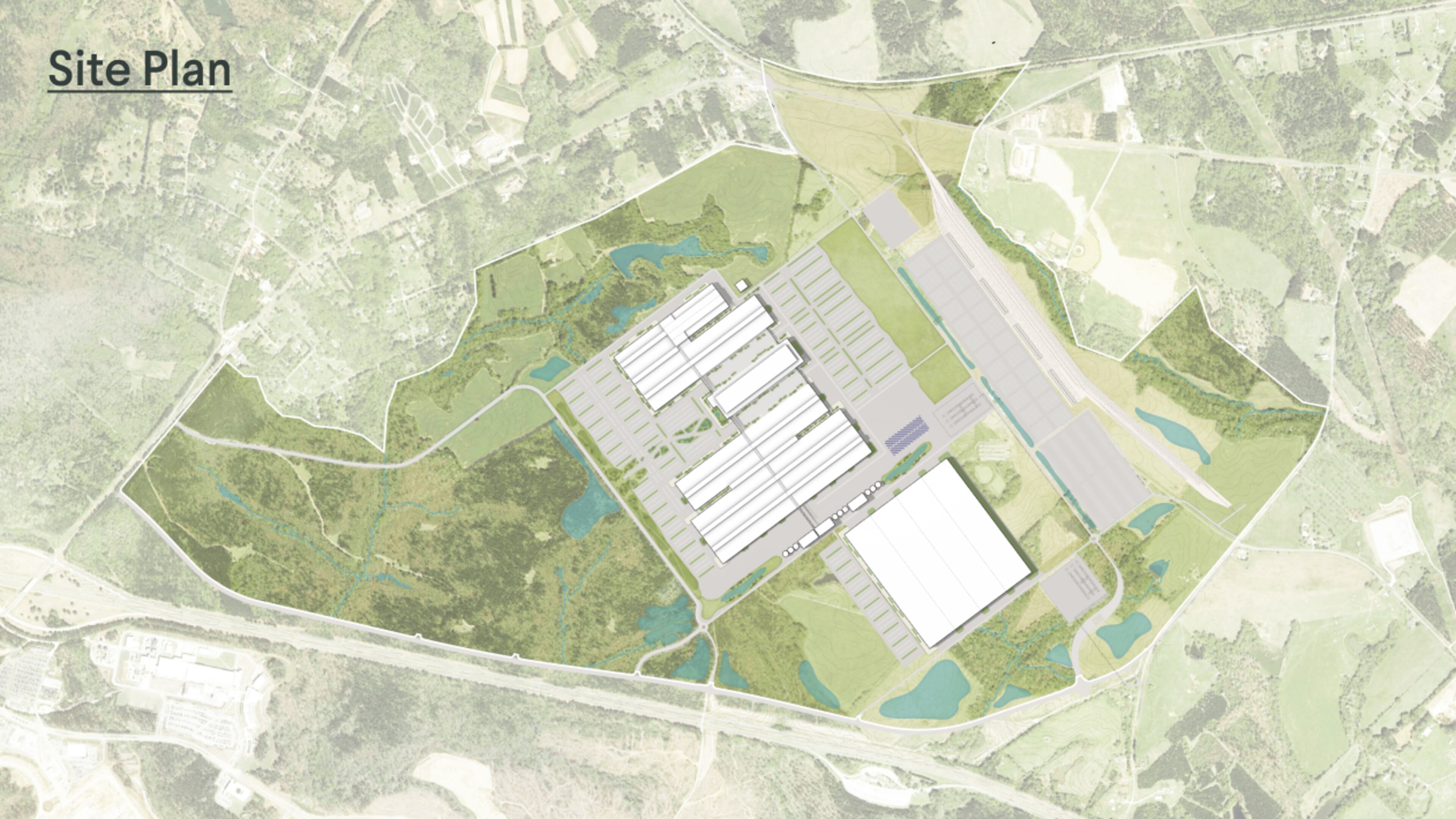Georgia authority acquires Rivian land, grading to start soon

A local government authority recently acquired the full 2,000-acre site where Rivian plans to build its $5 billion electric vehicle factory.
The Joint Development Authority of Jasper, Morgan, Newton and Walton Counties said Tuesday it paid nearly $90 million to buy the 44 parcels that will comprise the Rivian factory site. The last two parcels closed earlier in August. Overall, the JDA said it paid an average price of $47,000 per acre, including site improvements.
Andrea Gray, the authority’s attorney, called it a “big milestone.”
The Verner family, which includes former JDA chairman Alan Verner, sold hundreds of acres for the site. Several residents raised concerns with the property sale given Verner’s prior position, but the JDA and its attorneys have defended his actions, said he acted within the law and denied the sales amounted to a conflict of interest.
The JDA also voted to move forward with a nearly $48 million contract with Plateau Excavation to grade the first 500 acres of the property. Inflation, rising construction costs and other factors were blamed for the bid being about $16 million more than previously expected. A state grant will fund site work.
Plateau was more than $12 million cheaper than two other options.
Separately, state environmental regulators are in the process of reviewing Rivian’s development plans to ensure they will not harm local water quality. The JDA approved a hydrology study that analyzes the preliminary site plan’s storm water infrastructure and flooding risks.
Matthew Bray, a resident who lives near the Rivian site, said the hydrology study didn’t address risks such as pollution from water used to douse electric battery fires — a risk for EV factories. Rivian’s first factory in Normal, Ill., has had three such incidents since it opened last year.
“It’s always accidents and it’s not intentional, but when they do happen, they require thousands upon thousands of gallons of water to extinguish due to the nature of battery fires,” Bray said.
The U.S. Army Corps of Engineers is also reviewing a separate application for a Section 404 federal wetlands permit, which is required to ensure the plant causes minimal impact to streams and wetlands on the site. Though grading is expected to start next month, state officials have said no wetlands on the site will be impacted until the proper permits are in place.
A note of disclosure
Cox Enterprises, owner of The Atlanta Journal-Constitution, also owns about a 4% stake in Rivian and supplies services to the company. Sandy Schwartz, a Cox executive who oversees the AJC, is on Rivian’s board of directors and holds stock personally. He does not take part in the AJC’s coverage of Rivian.


